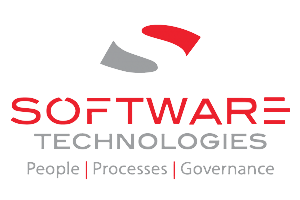The modern business environment is fraught with many risks and considerations that any company cannot afford to neglect if they are to be sustainable. For instance, today’s businesses are not solely inspired by the customary need to make profit for their shareholders but companies are also obliged to consider diverse interests from other stakeholders; government, regulators, financiers, customers, employees, suppliers and communities at large. This further stresses the need for companies to have concrete policies of monitoring their compliance status with these numerous stakeholder interests in mind.
Some of these risks and ethical concerns might not be immediately visible to companies or firms’ directors might not be aware or within track of their company’s compliance status. Take for instance the recent tax evasion crack-down that has plunged some notable players in the alcohol industry in a legal and reputational crisis. It is still early days in the tax evasion allegations against these brewery players and it is surely difficult to tell how the cases against the company and its top executives will pan out, but there is no denying their disruption to the said companies operations and the reputational damage so caused.

Because of such incidents, firms’ leadership have to constantly consider real and ethical issues that motivate sustainable corporate behaviour within this context of ethics and risks. It thus remains the responsibility of the board of directors to chart a strategy that addresses or attempts to mitigate majority of these prevalent risks.
To strike a healthy balance between profitability and risks, ‘responsible’ corporations employ a system of checks and balances that aligns profitability goals with the competing stakeholder ethical concerns and risks. In this context, the inclusive approach, more often, is to execute corporate governance from a compliance viewpoint.
At a glance, corporate governance lays the framework or overall management approach that determines an organizations direction and how a company positions itself towards meeting its obligations – both internal and external. It constitutes a set of processes that control how a firm is directed, administered or controlled. Corporate compliance on the other hand, ensures that businesses operate within specific legal, regulatory, contractual, or policy requirements.

Whereas corporate governance and corporate compliance are different strategic initiatives, they are interdependent in so far as their role in protecting against certain risks or guiding the overall business direction is concerned.
Importantly, non-compliance results in poor corporate governance and this brings the question of whether there exist mechanisms of fostering risk awareness and correction of identified risks, aiding compliance and ultimately effective oversight.
Boards can remain on top of compliance requirements with the aid of board management systems that not only ease corporate governance processes but also keep your directors up-to-date with the organizations compliance status with different regulatory bodies. Through such systems that keep board directors aware of what goes on around the company at all times, hence ensuring active oversight of risks that can derail smooth business operations.
What are you waiting for? To learn more about our Board Management System (eHorizon eBoard) , visit our website at www.stl-horizon.com or call +254 709 609 000
